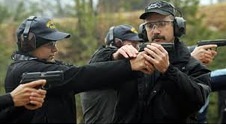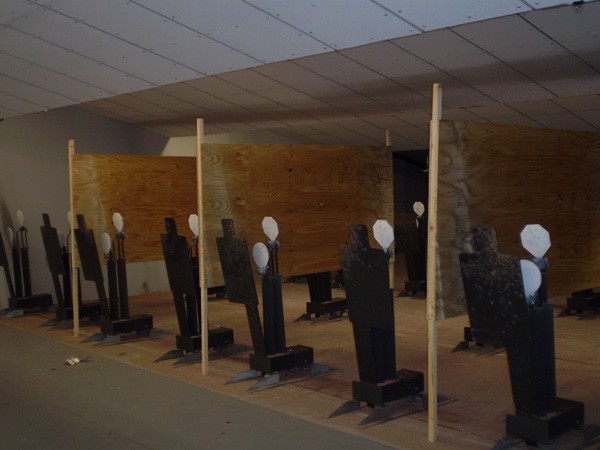The Timeless Debate: Law Enforcement Use of Range Facilities?

Range owners who are preparing for a new build must consider every possible revenue stream since it is their responsibility to ensure the range is profitable. During this process, many range owners believe they will be able to entice local law enforcement into using their training facilities and have this be a major source of revenue. This timeless debate–whether or not a relationship with the local law enforcement should be a major part of a range’s business plan–should be carefully considered before embarking on range construction.
Action Target Completes Build for Jay Henges Range in MO

In 1937, the Missouri Constitutional Amendment created the Missouri Department of Conservation (MDC) to “restore, conserve, and regulate Missouri’s over-stressed fisheries, forests, and wildlife populations.” The MDC administers more than 975,000 acres and maintains five staffed shooting ranges, along with more than 70 unstaffed ranges. These ranges experience tremendous use from Missouri locals, many who […]
Range Project Spotlight: New Range In Pinellas County, Florida

The Pinellas County Sheriff’s Office will soon train in their new state-of-the-art outdoor baffled firing range. This new range includes Action Target’s high quality outdoor Total Containment Trap, with a Screw Conveyor collection method. Both innovative systems make recycling much easier by catching all fired bullets in one 55 gallon barrel.
The new outdoor baffled firing range has a variety of tactical target systems, creating a multitude of training scenarios and environments that increases the range’s ability to do more than simply “qualifying” police officers.
Self-Funding Shooting Ranges

A New Way of Looking at Shooting Range Viability By Addison Sovine While the top-level view of a commercial indoor shooting range may appear simple and direct, the economic reality is often the opposite. If one were to take the cost of a range based on today’s market value and implement a state-of-the-art range featuring […]
Range Project Spotlight: Winston-Salem, NC

Designing and building ranges for many years with Action Target, Mike Stilwell has been actively involved in countless shooting range projects, including his own successful 16 lane commercial range, Rangemasters of Utah. Having 13 years experience of owning and operating an Action Target range is what made Stilwell an excellent person to help design and build a range for the Winston-Salem Police Department (WSPD).
When Stilwell first became associated with the WSPD, they presented him with hand-drawn sketches, lots of notes, and passion to build a world-class indoor training facility. WSPD required more than the typical 25 yard police range. They wanted to build one of the longest indoor ranges found in their geographic region.
New Features for Action Target Website

We received some great feedback following the launch of our new Action Target web site a few months ago. We know that the firearms industry is constantly growing and developing new ideas, products and solutions, which is why we are continually improving and adding new features and offers on our site. These great new features […]
Action Target Completes SharpShooters Commerical Range Project

Commercial indoor firing range developments are a vital addition to any community. They not only provide a safe and accessible shooting location for private citizens, they also provide a firearms training facility for local law enforcement agencies. Action Target Range Consultant Robb Anderson recently completed the “Sharpshooters” commercial shooting range project that demonstrated Action Target’s desire to provide shooters of all skills levels with an enjoyable and safe training facility.
Range Training – Orlando Police Department

A little over a year ago, the Orlando Police Departments Indoor Shooting range opened for firearms training. The range is a total of 55 lanes and is broken up into 3 separate training bays. Bay #1 is a 20 lane, 50 yard long shooting distance that includes Tactical ceiling baffling, a High Power Rifle rated […]
Latest Projects in the Great Lakes Region
No matter how big or small, if you need a target, range, ventilation system or custom facility, Action Target has a solution. Starting with our portable steel targets, graduating to our Tactical Application Scenario Kit (TASK) for the ultimate in portable options to the designing and building of a more permanent solution with a member […]
Knoxville’s New Shoothouse

Action Target would like to announce the newly completed Live-Fire Shoothouse for Knoxville Police Department, Tennessee! Located at Knoxville PD’s outdoor training facility, this project is the latest addition to what is already a very impressive training site, including an outdoor firing range, simulation rooms, and driving track. A special thanks goes to Knoxville PD […]